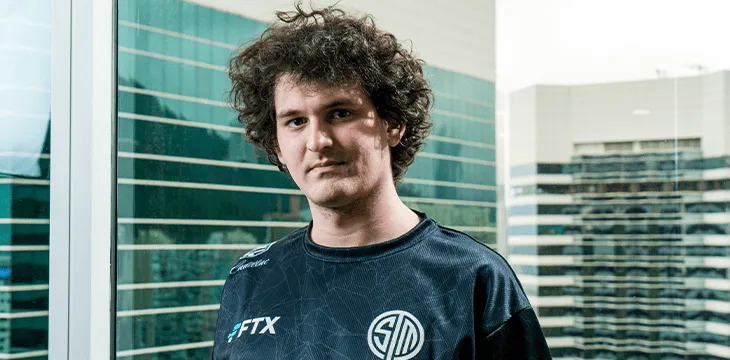|
Getting your Trinity Audio player ready...
|
It seems like every digital currency bull run has its key celebrity figures. In 2017, it was Charlie Lee and Vitalik Buterin, and in this cycle, the limelight has been squarely on FTX CEO Sam Bankman-Fried, affectionately known as SBF.
Recently, SBF hit the headlines again when he was featured in the Washington Post, vowing to give away millions worth of BTC tokens. The hotshot CEO admits this is about wooing regulators as well as onboarding people to FTX. He says he wants to paint a “healthy image” of FTX and the industry.
SBF is portrayed as a kind-hearted savant who wants to decentralize finance, build a new and more equitable financial system, and make the world a better place.
But is this true? Let’s take a closer look at Sam Bankman-Fried and who he really is.
What you need to know about Sam Bankman-Fried
SBF founded FTX in May 2019, and to say its rise has been anything less than meteoric would be an understatement. SBF has made a fortune by enabling retail traders to speculate on the prices of all manner of inherently worthless altcoins.
However, unlike Zhao, who has been in and out of trouble with regulators for years, SBF still has a comparably clean image. He was even invited to speak to the U.S. Congress recently. Spending lavishly on sports partnerships, throwing down hundreds of millions to rename the Miami Heat’s stadium the FTX Arena, and publicity stunts like giving away millions of free BTC have all helped to paint an image of SBF as one of the good guys working diligently to “democratize finance” and build a more accessible financial system.
However, when we analyze the facts, the amount SBF is giving away totals an estimated 1-3% of his total wealth. And he’ll soon make it back through trading fees and by trading via Alameda.
How so? FTX accounts for around 10% of all derivatives trading in the digital currency industry. It was recently revealed that one of SBF’s other companies, Alameda Research, is one of the biggest buyers of the controversial and criminally-linked stablecoin Tether. Alameda is described as a “quantitative cryptocurrency trading firm.” In other words, SBF has one company that enables traders to trade on margin and another that can very well trade against them. Given that Alameda is also a market maker, SBF and his pals can see the order books, and with access to almost unlimited amounts of Tether, liquidating rival traders is as easy as shooting fish in a barrel.
This is yet more evidence of how the digital currency industry today is made up of a close network of companies that work together in their mutual interests. FTX, Binance, and Tether are all on the inside, while the poor suckers who will download the FTX app in the hopes of scoring some free BTC will be firmly on the outside. For instance, FTX’s Chief Compliance Officer, Daniel S. Friedberg, has close business ties with Tether’s general counsel Stuart Hoegner where the pair were advisers to the company that was caught stealing tens of millions of dollars from online poker players before they reinvented themselves as digital currency counsels, even occasionally appearing together on BTC conference panels.
Perhaps all this easy money is why the boy wonder has been such an outspoken defender of Tether even after revelations of lies, deceit, and fraud on behalf of the offshore stablecoin giant?
Nothing is as it seems in the digital currency space
As Bankman-Fried seduces more wannabe traders into gambling on so-called digital currencies with the lure of free BTC, it’s worth remembering that all of these people have an agenda, and it usually involves you losing money to line their pockets.
Think this is overly harsh? SBF is no stranger to accusations of market manipulation. He has been sued for it, and he’s even been accused of running a RICO enterprise. According to one lawsuit, SBF directed some of his cohorts to dump hundreds of BTC on Binance, causing a tsunami of liquidations on both Binance and his own FTX platform.
Is this really the altruistic genius being painted in the media? Or is SBF just another greedy conman in the Crypto Crime Cartel? Make your own mind up, but in any case, remember that this is an industry run by some very shady people, and nothing is ever as it seems. If you trade on leverage on these platforms, you’re up against people with unlimited funds and an insider’s view of the orderbooks. Your chances of beating them are zero.
Follow CoinGeek’s Crypto Crime Cartel series, which delves into the stream of groups—a from BitMEX to Binance, Bitcoin.com, Blockstream, ShapeShift, Coinbase, Ripple, Ethereum, FTX and Tether—who have co-opted the digital asset revolution and turned the industry into a minefield for naïve (and even experienced) players in the market.

 08-18-2025
08-18-2025 





